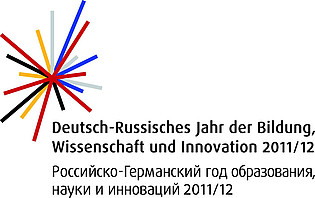Vorträge & Diskussionen
Leopoldina-Lecture "From Lomonosov to Modern Times: History of the Russian-German Cooperation in the Scientific Exploration of High Northern Latitudes"

Vortrag im Rahmen des Leopoldina-Symposiums „Russian-German Cooperation in the Scientific Exploration of Northern Eurasia and the Adjacent Arctic Ocean”
| Date: | Tuesday, 11 September 2012 |
| Time: | 17:30 to 19:00 |
| Location: | Staatliche Universität St. Petersburg, Petrovskii Saal, The Twelve Collegia, Universitetskaya nab., 7-9, Vasilievsky Island |
In Lomonosov’s time (1711-1765), Arctic Ocean exploration was in its infancy. Apart from the Great Nordic Expedition, Lomonosov himself promoted research through marine expeditions to find a passage between the Arctic and Pacific Oceans. Nansen (1861-1930) built the first dedicated polar research vessel, the FRAM, which allowed him to cross the Arctic Ocean. FRAM’s voyages are typical examples for the many national expeditions organized during the heroic times of polar research which brought about new insights into the geographic properties of the Arctic and Antarctica.
Icebreaker technology was further developed in the early 1900s. KRASSIN demonstrated that icebreakers could enter the Arctic sea ice to the North of Svalbard, but this new technology did not lead to a new research vessel. 50 years later, a new generation of icebreakers specifically dedicated to research was founded. These ships provide for modern laboratories and are able to venture deeply into the central Arctic Ocean, at least during summer: 20 years ago, ODEN and POLARSTERN reached the North Pole as the first conventionally driven research icebreakers. Many Russian and German institutes have benefited from having access to such vessels.
A few years ago, the European Polar Board of the European Science Foundation (ESF) has taken the initiative to plan a new ship. Within the ERICON AURORA BOREALIS-project, in which Russia and Germany are important members, a technical feasibility study was conducted. It demonstrated that a vessel with features like all-season capability for the central Arctic Ocean, large moonpool, and effective dynamic positioning could be constructed. However, it would need an international consortium of countries bordering the Arctic Ocean and of polar research organisations to jointly shoulder the costs to build and run such a ship.
The Lecture is held in English by Leopoldina member Prof. Jörn Thiede.
Kontakt
Dr. Ruth Narmann
Referentin der Abteilung Internationale Beziehungen
Nationale Akademie der Wissenschaften Leopoldina
Jägerberg 1 | 06108 Halle (Saale)
Tel.: 0345 - 47 239 - 835
E-Mail: ruth.narmann@leopoldina.org
Download
Professor Jörn Thiede
Professor Jörn Thiede (*1941), member of Leopoldina, studied geosciences at the universities of Kiel, Vienna and Buenos Aires. He obtained his PhD in 1971 at Kiel University in geology, specializing in marine micropaleontology. 1967 to 1982, he worked in academic positions at the universities of Aarhus/DK, Bergen/N, Oslo/N and Oregon State in Corvallis/USA, and he learned to sail the world’s oceans attempting to understand the history of their shape, waters and life. In 1982, he moved to Kiel University and initiated a large coordinated research project on “Global Change in the Norwegian-Greenland Sea“. He also successfully pursued the foundation of a new research institution in marine geosciences: GEOMAR – which is now a world famous research institution – was established in 1987 with Jörn Thiede as founding director.
Jörn Thiede became the first German Professor of Paleoceanology. In 1988, he was granted the Leibniz-Prize by DFG, Germany’s most prestigious science award. He led several expeditions into high northern latitude waters and initiated the Ocean Drilling Program “North Atlantic Arctic Gateways”. From 1997 to 2007, he was director of the Alfred-Wegener-Institute and carried out research in the Arctic and Antarctic. He then moved to Denmark where he was Professor for “Geology and Climate” at the Geocenter Denmark in Copenhagen until 2011. As chairman of the ESF European Polar Board and president of the Scientific Committee on Arctic Research, he reorganized both organisations, helped to prepare for the International Polar Year and initiated the project ERICON AURORA BOREALIS, funded by the European Union.
Nowadays, he is working as Principal Investigator of one of the Russian “megagrants” given to St. Petersburg State University with the aim to establish a new laboratory of geochronology and to unravel the history of the Lena River, the largest Siberian river draining into the Arctic Ocean, thus controlling major environmental properties of the Arctic Ocean.
